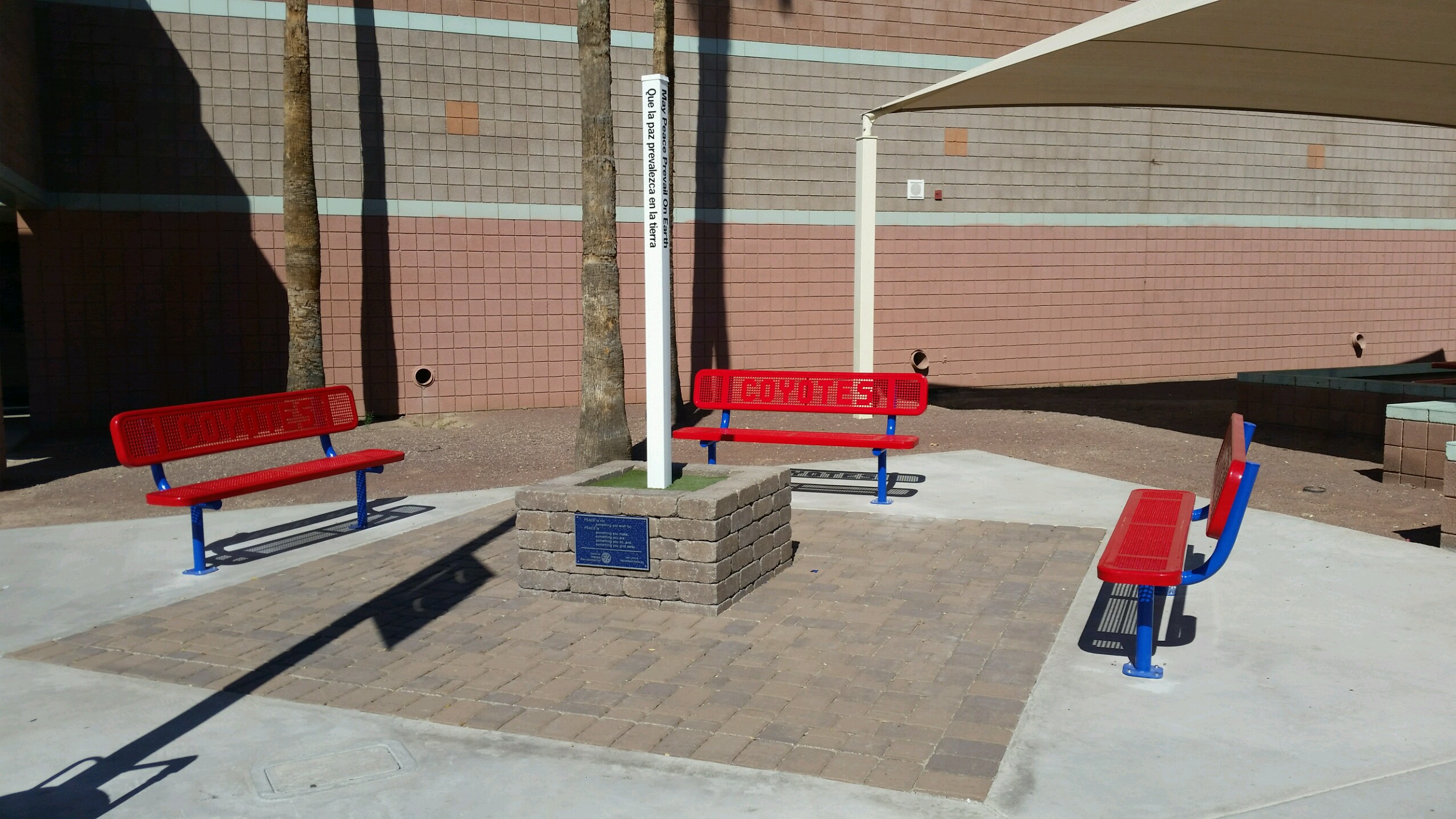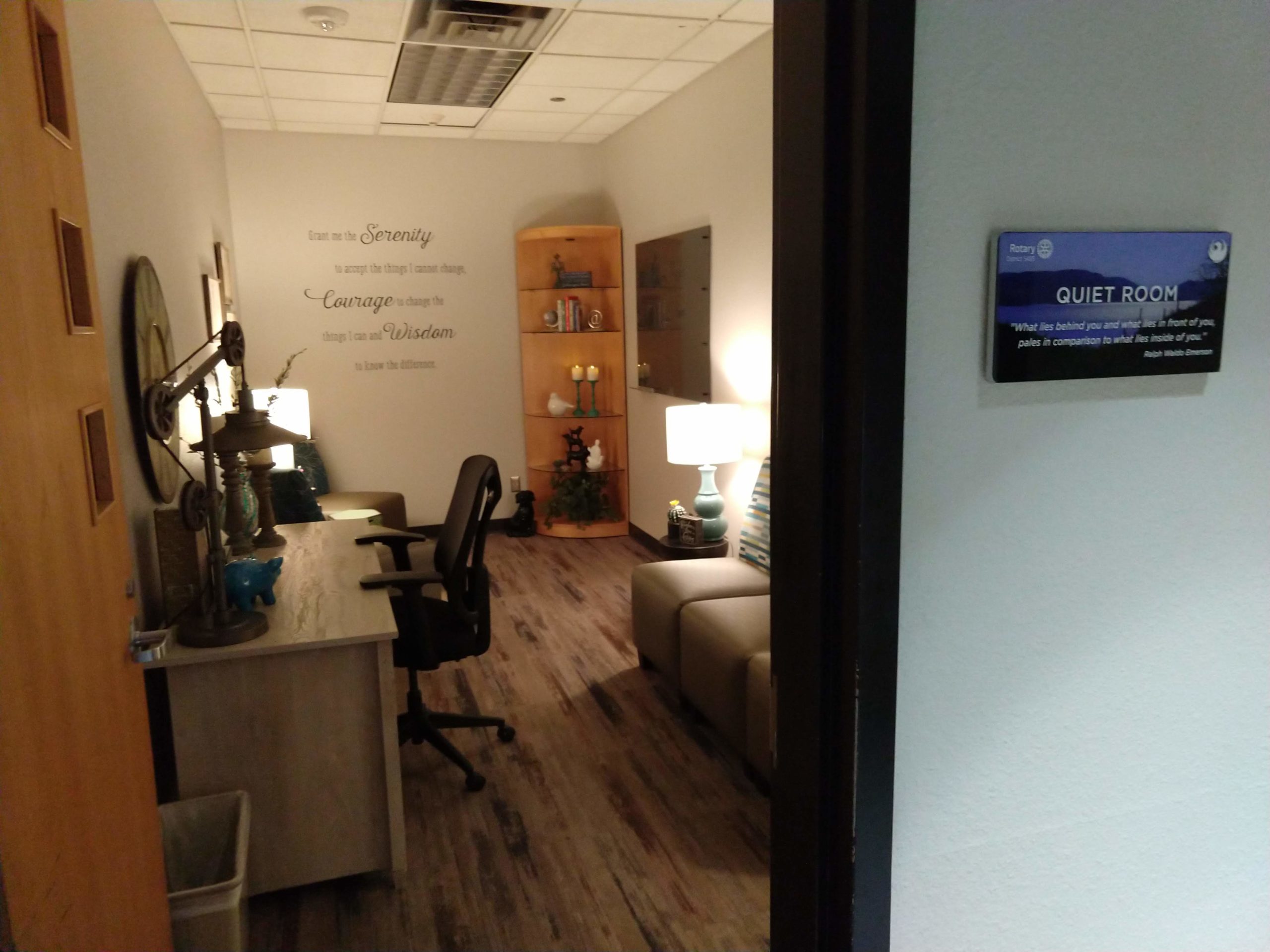From theory to practise, Rotarians are activating the concepts and framework of Positive Peace in their local communities.
A strategic partnership between the Institute for Economics and Peace (IEP) and Rotary International is fostering a successful collaboration that pursues Positive Peace.
Rotarians are now incorporating IEP’s conceptual framework – the eight Pillars of Positive Peace – into their development work and peacebuilding efforts.
Rotarians can benefit from learning about IEP’s Pillars of Positive Peace through the free Rotary Positive Peace Academy – established through Rotary and IEP’s joint partnership, says Patricia Shafer, a Rotary Peace Fellow, IEP Ambassador, member of the Rotary Club of Charlotte, North Carolina, Executive Director of NewGen Peacebuilders, and Senior Fellow for Peace Education at the Alliance for Peacebuilding.
Shafer says that training in Positive Peace teaches Rotarians to apply IEP’s conceptual framework to projects that they are already working on in education, literacy, water and sanitation.
Shafer has become one of the first Positive Peace activators through Rotary and IEP’s partnership. This role has connected Shafer with other Rotarians who want to build peace within their projects and help their communities do the same.
Shafer says that this opportunity provides Rotarians with the chance to connect with local communities to discuss peacebuilding, while providing them with the same language, a common framework and a mutual way of thinking about peace.
“It’s transformative to look at projects that way. It’s how you go from doing good service projects to being activators for Positive Peace” – Patricia Shafer
KC Williams, president of the Rotary Club of Maryville, Tennessee, is one Rotarian who has sought to introduce this conceptual framework to her Rotary Club. Williams was inspired by IEP’s eight Pillars of Positive Peace when she learned about the Rotary Positive Peace Academy.
With this enthusiasm, Williams has designed her club’s yearly program to examine how Positive Peace can be implemented within her local community of Blount County.
Williams’ Rotary Club is now investigating one Pillar of Positive Peace every month, for eight months. Williams introduces each pillar at the beginning of the month, before featuring a program speaker, guided table talks, and a tech tool program related to the topic.
After the club’s month-long discussion, Williams summarises the issues identified by her club and their ideas on how they can support the implementation of each Pillar of Positive Peace in Blount County. At the end of this process, Williams will compile Rotary members’ ideas into a guide which can be used for future planning.
“My hope is that this year-long discovery process will produce an engaged membership that is both knowledgeable and enthusiastic about Positive Peace and is able to make informed decisions about using club resources, both financially and through volunteer efforts, to build Positive Peace in our community” – KC Williams
Chuck Fitzgerald, a District Governor from 2014-2015, from the Rotary Club of Peoria, Arizona, has also worked to build Positive Peace within his local community.
Fitzgerald first learned of the Pillars of Positive Peace while organising the first Pursuing Peace Conference in 2018. As he was organising the event, he asked IEP to take part. Fitzgerald says, “until that day, I was 100 per cent a negative peace guy. Since that day, I am a 100 per cent positive peace guy. I think this was true for the 110 attendees too”.
Fitzgerald has since incorporated Positive Peace into his work with his Rotary Club through two service projects. Members of his local club installed a privately funded peace space at a local high school, which is maintained by the schools Interact Club.
This space provides a place on campus for student peer mediation efforts. The Rotary Club’s second project was a quiet room, which was installed within the City of Phoenix’s 911 call centre.
The space is used by 911 operators as a place to decompress and reset after fielding unusually difficult calls. Fitzgerald recognises these two spaces to offer peace when it is most needed.


Fitzgerald has continued to host the Pursuing Peace Conference again in 2019 and 2020, and Positive Peace has been the centre of the event’s discussions. Upon reflection, Fitzgerald recognises that Positive Peace happens within our relationships, in our organisations and through service.
“I have come to say, ‘every act of service is an act of peace’. And I believe it. Every water well we install, every cleft palate we repair, every book read to a child, every time we paint the nails of an elderly women in assisted living, every foodbank donation, every smile … is an act of peace”.
Learn more about Positive Peace by enrolling in Rotary Positive Peace Academy or visiting the Rotary and IEP partnership webpage.
Read more about Patricia Shafer’s perspective here.
Read more about KC Williams’ work here.